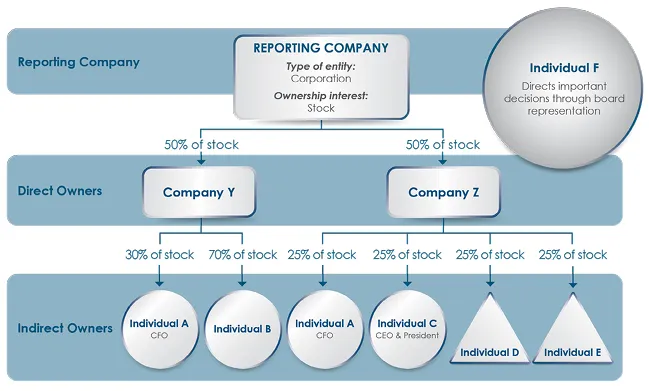Contact Us
office@taxsherpa.com
(678) 944-8367
Follow Us:
Our Blogs
On our blogs you will find our Tax Sherpa Stories series as well as additional posts covering all manner of tax topics. Some items are timely as there are multiple tax filing dates throughout the year and some items are important larger concepts.

BOI Reporting Update (Again)
Latest Development: Texas Court Halts Enforcement of the Corporate Transparency Act
The ongoing legal battle over the Corporate Transparency Act (CTA) has taken a significant turn. The United States District Court for the Eastern District of Texas recently issued a preliminary injunction in the case Texas Top Cop Shop, Inc., et al., v. Merrick Garland, Attorney General of the United States, et al. This ruling temporarily halts the federal government from enforcing the CTA and its associated regulations, citing constitutional concerns.
Background: March 2024 Decision and Its Implications
In March 2024, a federal court declared the Beneficial Ownership Information (BOI) reporting requirements under the CTA unconstitutional, emphasizing that the law overreached federal powers and violated privacy rights. Despite this ruling, the federal government continued to implement the CTA, arguing its importance in combating financial crimes like money laundering and terrorism financing.
The Latest Ruling: A New Blow to the CTA
The recent decision from Judge Mazzant went further by describing the CTA as “likely unconstitutional.” The court underscored the potential for significant privacy violations and federal overreach, reinforcing concerns about the CTA's impact on businesses. As a result, the federal government is temporarily enjoined from enforcing the law.
The court emphasized:
Federalism Concerns: The CTA imposes federal regulations on entities traditionally governed by state laws, disrupting the balance of state and federal powers.
Privacy Implications: The requirement for companies to report sensitive ownership information could infringe on individuals’ rights to privacy and association.
Penalties: Noncompliance penalties, including steep fines and potential imprisonment, raised additional concerns about the law's fairness and proportionality.
What This Means for Businesses
This injunction provides a temporary reprieve for businesses that would have been subject to the CTA's reporting requirements starting in 2025. It also prevents the enforcement of penalties for noncompliance during this period. However, it’s essential to recognize that this is not the final word on the law’s constitutionality. The injunction remains in place while the courts further review the matter.
Looking Ahead: What to Expect
As legal proceedings continue, we will closely monitor any developments. This case highlights the ongoing debate about the balance between privacy rights, federal authority, and efforts to combat financial crimes. The federal government may appeal the decision, and the law’s ultimate fate will likely hinge on higher court rulings.
Key Takeaway for Businesses:
While this decision offers temporary relief, it is essential to stay informed and prepared for potential changes. Businesses should consult with legal counsel to understand how this case might impact their compliance obligations and broader operations.
Stay tuned for updates as the case progresses.
Frequently Asked Questions
Q:
What's the difference between tax advisory and just filing my taxes?
Filing your taxes each year is a necessary task, but it is always backwards looking. Tax advisory works with you throughout the year to make sure that you are on the right track when it comes to your taxes and have strategies in place to save money now.
Q:
I've heard about tax write-offs for small businesses. What exactly can I write off, and how does it benefit my business?
Tax write-offs, also known as tax deductions, are expenses that a business incurs that can be subtracted from its revenue to reduce the amount of taxable income. Common write-offs include office supplies, mileage, rent for a business location, and advertising expenses, among many others. By writing off legitimate business expenses, you can significantly reduce your taxable income, which can lead to a lower tax bill. It's essential, however, to maintain proper records and ensure that the expenses are truly business-related.
Q:
What's the difference between a tax deduction and a tax credit?
A tax deduction reduces the amount of your income that is subject to taxation, which in turn can lower your tax liability. Common deductions include expenses like mortgage interest, student loan interest, and business expenses. A tax credit, on the other hand, is a direct reduction of your tax bill. This means if you owe $1,000 in taxes and have a $200 tax credit, your tax due would be reduced to $800. Some popular credits include the Child Tax Credit, the Earned Income Tax Credit, and credits for energy-efficient home improvements.
Q:
I'm thinking of hiring an independent contractor instead of an employee. Are there different tax implications for each?
Yes, there are significant tax differences between hiring an employee and an independent contractor. When you hire an employee, you're responsible for withholding federal and possibly state income taxes, Social Security, and Medicare taxes from their paychecks. You also typically pay unemployment taxes on wages paid to employees. Independent contractors, on the other hand, are responsible for their own taxes. As a business owner, you'd provide them with a Form 1099-NEC (if you pay them $600 or more during the year) instead of a W-2, and they would be responsible for their own self-employment taxes. It's important to correctly classify your workers, as misclassifying can lead to penalties.
Get in touch with us
Have questions? Use the form here and one of our knowledgable staff will get back to you as soon as possible.
(678) 944-8367
office@taxsherpa.com
2302 Parklake Dr NE Ste 675
Monday - Friday, 10:00 am - 5:00 pm
Send us a message

Follow Us
Follow Us
Disclaimer: The content presented on this website is intended for informational purposes only and is not tailored to the needs of any specific individual or entity. It should not be considered as financial, investment, or tax advice. The information provided is general in nature and does not account for individual circumstances or financial positions. Before making any financial or tax-related decisions, we strongly advise consulting with a qualified professional who can provide guidance tailored to your individual situation. All information on this site is provided in good faith, but we make no representation or warranty of any kind, express or implied, regarding the accuracy, adequacy, validity, reliability, availability, or completeness of any information on the site. Use of this site and reliance on its content is solely at your own risk.
Services
More
Contact Us
office@taxsherpa.com
(678) 944-8367
2302 Parklake Dr NE Ste 675
Atlanta, GA 30345
Monday - Friday, 10:00 am - 5:00 pm
© Copyright 2026. Online Tax Solutions Group LLC dba Tax Sherpa. All rights reserved.
